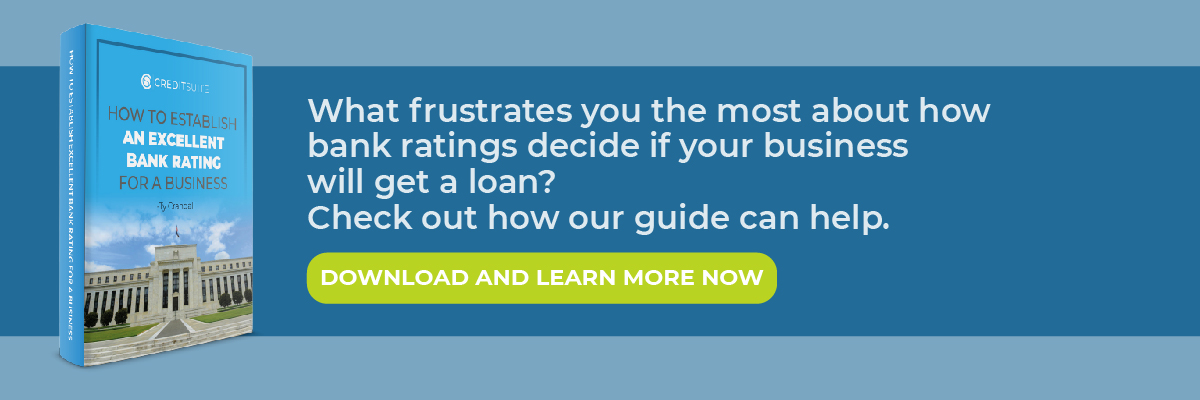Need to know how to get funding for your business? Of course, you do! There is so much to consider. For example, what stage your business is in and overall fundability each makes a difference.
Most people know that though. The big question is, what exactly is fundability? More than that, what exactly affects Fundability? That’s getting a little ahead of things though. You have to know what types of funds are available, and you need to know your Fundability makes you eligible for whatever you need.
All the Ways to Get Funding for Your Business and What You Need to Know About Each One
The first step is to figure out what type of funding will work best for you at this current stage in your business. The next step? That would be to figure out whether you qualify, and if not, how to fix that. Here’s what you need to know.
Types of Funding
Before you can figure out what type of funding you need, you have to know what type of funds are out there.
Traditional Term Loans
These are loans from traditional banks and credit unions. As a business, your business credit score can help you get some types of funds even if your personal score isn’t awesome. That isn’t necessarily the case with this type of cash however.
With a traditional lender term loan, you are almost always going to have to give a personal guarantee. This means they will check your personal credit. If your personal credit score isn’t in order, you’ll probably have trouble.
So how high does your credit score have to be? If you have at least a 750 you are in pretty good shape. Sometimes you can get approval with a score of 700+, but the terms will not be as favorable.
If you have really great business credit, your lender might be willing to be more flexible. However, your personal credit score will still weigh heavily on the terms and interest rate.
These are the hardest types of funds to get, but they typically have the best rates and terms.
SBA Loans
SBA loans are traditional bank loans, but they have a guarantee from the federal government. The Small Business Administration, or SBA, works with lenders to offer small businesses financing solutions that they may not be eligible for based on their own credit history. Because of the government guarantee, lenders are able to be more flexible with personal credit score requirements.
In fact, it is possible to get an SBA microloan with a personal credit score between 620 and 640. These are very small loans, up to $50,000. They may require personal collateral as well.
The trade-off with SBA loans is that the application process is lengthy. There is a ton of red tape connected with these types of loans.
Business Line of Credit
This is basically the traditional lender’s version of a business credit card. The credit is revolving, meaning you only pay back what you use, just like a credit card. Rates are typically much better than a credit card. The application and approval process, however, is more similar to that of a traditional term loan.
If you need revolving credit and can qualify for a term loan, a line of credit is the best of the available business money types for you. It is great for bridging cash gaps and covering short term expenses without the high credit card interest rates.
There are no cash back rewards or loyalty points, though. This makes some business owners prefer business credit cards in some cases.
Invoice Factoring
If you are an established business with accounts receivable, invoice factoring is one type of financing that you have access to. This is where the lender buys your outstanding invoices at a premium, and then collects the full amount themselves. You get cash right away, without waiting for your customers to pay the invoices.
This is a good option if you need cash fast, or you do not qualify for other types of funds. The interest rate varies based on the age of the receivables.
Private Lenders
These are lenders other than traditional banks and credit unions that offer terms loans. Usually they operate online. The difference between these guys and traditional lenders is that the loans have less strict approval requirements. In addition, the application process is usually much faster. Most often you can simply apply online, get approval in as little as 24 hours, and the funds are in your account within 24 to 48 hours after approval.
These are an option if your personal credit isn’t terrible and you need funds fast.
Crowdfunding
Crowdfunding is a newer option for finding investors. It is not always possible to find one or two large investors. With crowdfunding, you can literally have multiple investors fund your business $5 and $10 at the time.
There are many crowdfunding sites, but the most popular are Kickstarter and Indiegogo. The platforms are similar but there are some important differences. The most obvious is when they release the funds raised..
Kickstarter requires you to set a goal, and you do not receive your funds until that goal is reached. For example, if you set a goal of $10,000 when you start your campaign, you will not receive any money that investors offer up until you reach that $10,000.
Indiegogo requires a goal as well, but they offer the option to receive funds as you go if you want. They also have something called InDemand. This program allows you to continue raising funds after your original campaign is over without starting a whole new campaign. It is more of an extension of the first one.
There are other crowdfunding sites also. These are not the only two. Different ones work better for certain businesses and vendors. To figure out which one you might have the most luck with, you will have to research. Keep in mind your type of business and the specific business each one appeals too.
Grants
Generally, these are offered by professional organizations. There are some government grants available also. Competition can be stiff, but they are definitely worth a shot if you think you may qualify.
While requirements vary from grant to grant, and most are only awarded to a certain number of recipients, they are worth looking into if you fall into one of these basic categories.
- Women owned business
- Minority owned business
- Businesses run by veterans
- Businesses in low income areas
There are also some corporations that offer grants in a contest format that do not require anything really other than that you meet the corporation’s definition of a small business and win the contest.
Business Credit Cards
These get a bad rap. However, if there isn’t another option, they can actually work well. The draw is that they are available much more readily even with a credit score that isn’t great. To be fair, the lower the credit score, the higher the interest rate. Also, there are limits on how low they will go with a credit score.
Still, most of the general public is eligible for this type of financing. They do a credit check, but your credit doesn’t have to be as high as it would be to get approval for a traditional loan.
The downside of business credit cards is that they typically have a high interest rate. The upside is that many of them offer rewards in the form of cash or points.
Best Funding at Each Stage
Which type of funds will work best for you depends on a lot of factors. The main two include which types you qualify for and what phase your business is in. Assuming you are eligible for all types of financing, here is what to consider at each stage.
Startup Phase
In the startup phase, there are a couple of things to think about when determining which business capital type might work best for you.
If you fall into one of those categories that make grants an option, that is the best first stop. Grants are free and clear. That money is yours, without repayment, to use in your business. They usually do not rely on the success of the business or the credit worthiness of the owner. The business or proposed business only has to meet the requirements set forth to apply, and then win the grant.
Crowdfunding is also a viable option here, but there has to be a backup plan in case the goal isn’t met.
Traditional term loans are a good idea for the startup phase also, if you qualify. The interest rates and terms are more favorable than other types of financing for those that meet the credit requirements.
If you do not meet the credit requirements for traditional term loans, then non-traditional lenders are the next best option. They may have higher interest rates, but they get the job done. Plus, they can help build your business credit score if you make your payments on time.
While not impossible, it is not usually a good idea to start a business using credit cards if you can help it. Of course, invoice factoring is not an option because you have to already be in business to have the invoices necessary.
Growth Phase
There are several aspects of growth that can benefit from different funding options.
Increase Inventory
If you see the growing demand and need to increase inventory, a revolving credit line is going to work best.
If already in place, these are available as needed to accomodate a large inventory purchase. They also allow for taking advantage of special pricing when possible.
A business line of credit works well due to the lower interest rate, business credit cards will work in this situation also. In fact, if they have really great rewards attached to them, they could even be the better choice. It can’t hurt to have both available if you can so that you have options.
If available, grants work well for growth projects as well.
Equipment
For large equipment, it is best to use traditional term loans if available. This is because they are typically longer term loans for larger amounts. Lower interest rates and favorable repayment terms are key. We all know, however, this isn’t always possible. In a pinch, other types can work for this.
Grants may be an option if there is not a time crunch. If time is of the essence, it is possible to purchase equipment on credit cards, but you could run into problems with cost versus credit limit.
Expansion
If you want to add on to your current building or add another location, term loan financing is the best option. Whether it needs to come from a traditional or non-traditional lender will depend on your specific situation.
Working Capital
 Working capital is the cash you have available to run your business. Everything from payroll to repairs, maintenance, seasonal cash gaps, and emergencies are all things working capital covers.
Working capital is the cash you have available to run your business. Everything from payroll to repairs, maintenance, seasonal cash gaps, and emergencies are all things working capital covers.
It can come from various funding types. There are working capital loans available, but lines of credit and business credit cards can work in these situations too. Unless you already have a working capital loan before it is needed, you will likely have to access business credit cards or some form of non-traditional financing for this.
In a pinch to cover a cash gap, a merchant cash advance or invoice factoring can work well.
Your Ability to Get Funding is Directly Affected by Your Fundability
The main factor in whether or not you can get funding for your business is fundability. The fundability of your business includes many things. It has to do with how your business is set up, both personal and business credit, and even things you would never think about like parking tickets and outstanding liens. The most controllable part of course, is business credit. If you work hard to keep that strong, it is possible to get the cash you need.



